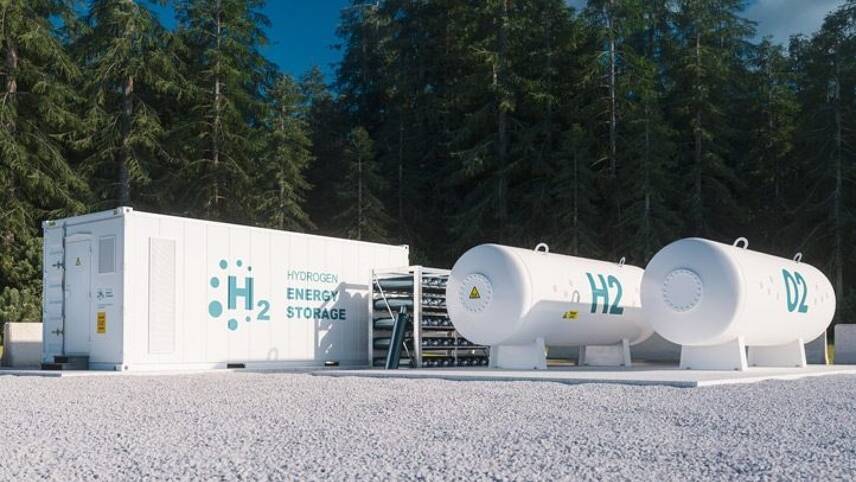Register for free and continue reading
Join our growing army of changemakers and get unlimited access to our premium content

According to Wood Mackenzie
The report, produced by Frontier Economics on behalf of the Department for Business, Energy and Industrial Strategy (BEIS) explores how the government can best support hydrogen production facilities with a capacity of 100MW or more in the near-term. BEIS believes that “low-carbon hydrogen technologies and markets may be less mature” for several years to come, the report states.
According to the report, contractual support for green hydrogen through the CfD mechanism would give investors more certainty than providing regulated returns. It recommends that hydrogen generators are given a premium on top of market revenue for selling low-carbon hydrogen and investing in expanded low-carbon production capabilities.
The Government could also offer guaranteed returns to producers through the CfD, the report states. Such a model would see BEIS top up revenues if they fall short of the contract, and the producer pay money back to the government if revenues spike. On the latter, taxpayers would then receive a cut.
The report also explores the opportunities and challenges of implementing an “ongoing, technology-neutral” subsidy scheme or an obligation scheme, in a similar format to the Renewables Obligation (RO) scheme which shut to new applications in 2017. Fuel suppliers and businesses within the heavy industrial sectors could be obligated to pay a new fine if they do not provide or consume a certain proportion of hydrogen, the report states.
Frontier Economics ultimately suggests that both contractual and regulatory approaches are changed. However, it concludes that including green hydrogen in the CfD, or creating a similar contractual mechanism for the fuel, is the single best option – despite the fact that a regulatory regime may be simpler to develop and introduce.
The worst single option is an obligation scheme guaranteeing purchases, which could “potentially” expose business and domestic consumers to “very high payments”, proving unpopular with taxpayers and incompatible with ‘just transition’ principles.
Next steps
BEIS is expected to further investigate different contractual, regulatory and hybrid models before making any changes to legislation.
However, given that the Committee on Climate Change (CCC) has repeatedly concluded that hydrogen will play a “non-optional” role in the UK’s transition to net-zero by 2050, Ministers are facing increasing pressure to lay out the next steps for the sector.
The challenge is not only bringing hydrogen production capacity and related infrastructure online, but ensuring the fuel is genuinely ‘green’. According to Wood Mackenzie, less than 1% of all global hydrogen production each year is fully powered by renewables. Energy efficiency improvements will also need to be made to ensure that hydrogen is a commercially viable option.
Manchester is set to be one of the UK’s hydrogen hubs, along with the Humber region and the Isle of Wight, where major projects have been granted planning permission.
To complement these projects, Ministers are facing calls to develop a long-term plan to support the sector. Earlier this month, the Environmental Audit Committee (EAC) published the results of its July inquiry into emerging low-carbon technologies, concluding that a national Hydrogen Strategy could spur decarbonisation across the nation’s most energy-intense sectors. Then, the Hydrogen Taskforce published new scenario analyses detailing how hydrogen production could generate £18bn for the UK economy and support more than 75,000 jobs over the next 15 years.
Most recently, BEIS opened a £10m funding pot to help distilleries across the UK decarbonise their heat. Eligible projects include hydrogen, biomass and biomethane. Scotch Whiskey firms, in particular, seem keen to take part.
Sarah George


Please login or Register to leave a comment.